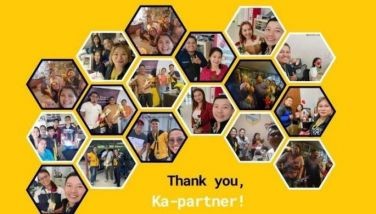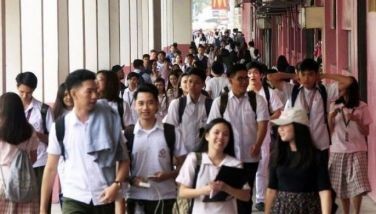The only two certainties in life: Death and taxes, and how they concern me

Illustration by Kat Eloriaga
Poverty, war, and inequality: these are some of the things we see on the news every day. As a young individual, I think the biggest problem our country is facing right now is apathy. We’ve become apathetic to the needs of one another. The Philippines hungers. Humanity loses its sense, and we kill. Race, sex, gender, wealth – things that should not define us – are given more meaning and importance that then result in our divide.
We’ve become apathetic to the point of being indifferent to our current state. Instead, we focus on our own selves; we’re deaf to cries for help, blind to the images of poverty and suffering in society, and silent instead of calling out the injustices and oppression society faces.
As Saint Teresa of Calcutta said, “Loneliness and the feeling of being unwanted is the greatest form of poverty.”
My generation prides itself in being the hope of tomorrow; thus, we ourselves must take on the responsibility of the betterment of society. To begin to change, one must first know the problems. One must be aware, and be critical with the information presented; in the sense of critical thinking in Critical Pedagogy, we must ask ourselves, “Who benefits?” to understand the structures that allow oppression, the suppression of democracy, and the spread of inequity, and use that knowledge to work in order to change them (Burbules and Berk, 1999).
Consider taxes. Vague, but I would notice people from my age being unaware and even uninterested. “Who wants to read about taxes, anyway?”
Take for instance the recent tax reform policies of the Duterte administration (TRAIN). It lowers income taxes, increases the national budget to $3.77 billion, and would help usher in the golden age of infrastructure, with 70 per cent of the revenue from this measure allotted to such projects, while 30 per cent would go to social services.
The policy may sound good. Infrastructure would lead to the creation of jobs, encourage businesses to grow with to the expansion of infrastructure, and create a multiplier effect; workers build infrastructure, they earn, businesses grow, and then use what they earn on businesses, which would lead to the growth of the economy. It’s principled on Keynesian economics, and can be labeled as “pro-poor”.
Yet, VAT would be expanded to other products; taxes for automobiles, coal, petroleum, and sweetened beverages will be raised (with some exceptions on 3-in-1 coffee, milk, and food substitutes) to increase the budget. Even the exceptions are seen as pro-poor. But the entire thing, if looked thoroughly, can be seen as detrimental to the poor.
“So why should we care? How does this affect those who do not live in poverty?”, you might ask. Well, everyone is dependent on coal and petroleum for transportation and electricity. Prices of goods and services will rise. You may abstain from sweetened beverages, and some possible VAT products, but you can never abstain from electricity, which is affected by rising taxes.
Realizing it concerns you, imagine the possible impact on those who live in poverty. With the standards of living being raised, would we Filipinos be able to earn enough to provide for ourselves when the current minimum wage (P512 in NCR and lower in other regions) is still low?
“We Filipinos do not have a sense of shared destiny,” the late Senator Miriam Defensor-Santiago once said.
Taxes aren’t simply “just taxes” that we can ignore as we go about our lives. Some of us may be fortunate to not be burdened, but should we stop at that? We cannot brush things like these aside; we must realize that it concerns not just ourselves but everyone else. When we react to it, we should not be confined to our own, selfish interests; we must represent the stakes of our countrymen.
Who benefits? Who is oppressed? We must be critical thinkers; thinkers who have compassion for our fellow men and women.
If we start to care, to know, to think critical, and to realize that everything affects each and every one, then together, we Filipinos can work on our collective destiny for the amelioration of our society.
Adrian Loyola is a student at the O.B. Montessori Las Piñas.
- Latest





























